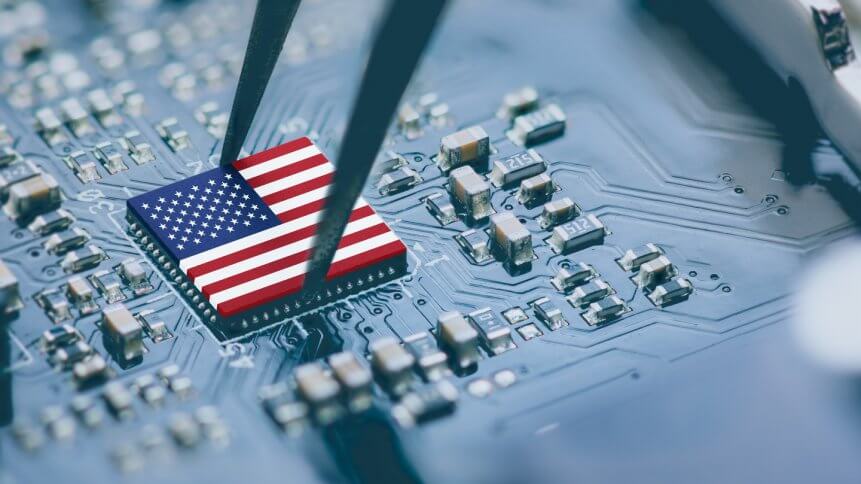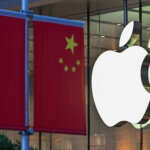Lam Research paying a hefty price due to export ban

- Lam Research, forced to suspend sales and services to Chinese semiconductor companies, expects US$2 billion to US$2.5 billion loss in annual revenue in 2023.
- The American company said it expects to lose some “very profitable” Chinese clients due to the latest restrictions.
- Even Applied Materials and KLA Corporation will be impacted by the export control to an extent.
The US houses two of the world’s largest semiconductor equipment makers — Lam Research and Applied Materials — both with significant Chinese clientele in their portfolios. Unfortunately, since the US announced a ban on the export to China of US semiconductor equipment, those leading chip equipment suppliers have no choice but to suspend sales and services to their Chinese counterparts.
On October 7th, the Biden administration imposed a sweeping set of export controls that included measures to cut China off from certain semiconductor chips and chipmaking equipment. Under the rules, US companies must stop supplying Chinese chipmakers with equipment that can produce relatively advanced chips unless they first obtain a license.
Due to that change, Lam Research, Applied Materials and KLA Corporation, US companies which hold dominant shares in certain segments of the semiconductor manufacturing process, have no choice but to take immediate measures to comply with the new rules. California-based Lam Research in particular, the world’s fourth-largest semiconductor equipment maker by market share, has some “very profitable” Chinese clients in its portfolio.
When announcing its earnings for the recent three months ended September 25, Lam Research admitted that the company’s growth trajectory is highly likely to be impacted following the latest move by Washington towards China. For the recent quarter, Lam Research reported US$5.1 billion in revenue, up 17.9% year-on-year — China was its largest revenue contributor, accounting for 30% of the total.
Now, the company can no longer ship anything to its Chinese clients, especially those under the US export restrictions, even if part of the equipment was shipped before the new rule was announced. The company consequently expects its Chinese revenue to be “significantly lower” next year, estimating an impact of US$2 billion to US$2.5 billion in 2023, president and CEO Tim Archer said at the earnings call this Wednesday. “We have taken the necessary steps to ensure full compliance with the rules and have ceased shipments and support as required,” Archer said, according to a report by Nikkei.
For the October-December period, the company forecast revenue to remain flat quarter-on-quarter, at around US$5.1 billion, also due to the latest US export restrictions. As CFO Doug Bettinger said during the earnings call, “This revenue guidance would have been decently higher if not for these new regulations.” Bettinger reiterated that Lam Research has lost “some very profitable customers in the China region, and that’s going to persist, obviously.”
To put it into context for Lam Research, the company is a key supplier of wafer fabrication machines to Chinese memory chip champion Yangtze Memory Technologies Co. (YMTC), whose 128-layer flash memory chips are by far the most advanced in China. In addition to its 128-layer memory chips falling under the scope of the latest US export, YMTC has been put on the so-called Unverified List, meaning Lam Research is prohibited from sharing any design, technologies, documents, or specifications with the company without a license.
Even Apple has put on hold plans to use YMTC memory chips, as reported recently. Ironically, it has been widely reported in the last two weeks, since the restrictions were put in place, that the move by the Commerce Department against China is hitting US semiconductor companies the worst. US government policy is aggravating what was already shaping up to be a severe industry downturn.
On the other hand, California-based Applied Materials, a leading manufacturing equipment supplier, has downgraded its August-October earnings outlook, while fellow American equipment supplier KLA has temporarily suspended support for some Chinese chipmakers. Applied Materials, when wrapping up its fiscal 2022 at the end of October, even said the bans will reduce its fourth-quarter revenue by US$400 million.
In contrast, South Korea’s Samsung Electronics and SK Hynix, which have semiconductor plants in China, received one-year waivers from the Commerce Department regarding the new regulations. Even Taiwan Semiconductor Manufacturing Co said it obtained the exemption from US rules, enabling the world’s biggest contract chipmaker to keep expanding its facilities in China’s eastern city of Nanjing.










